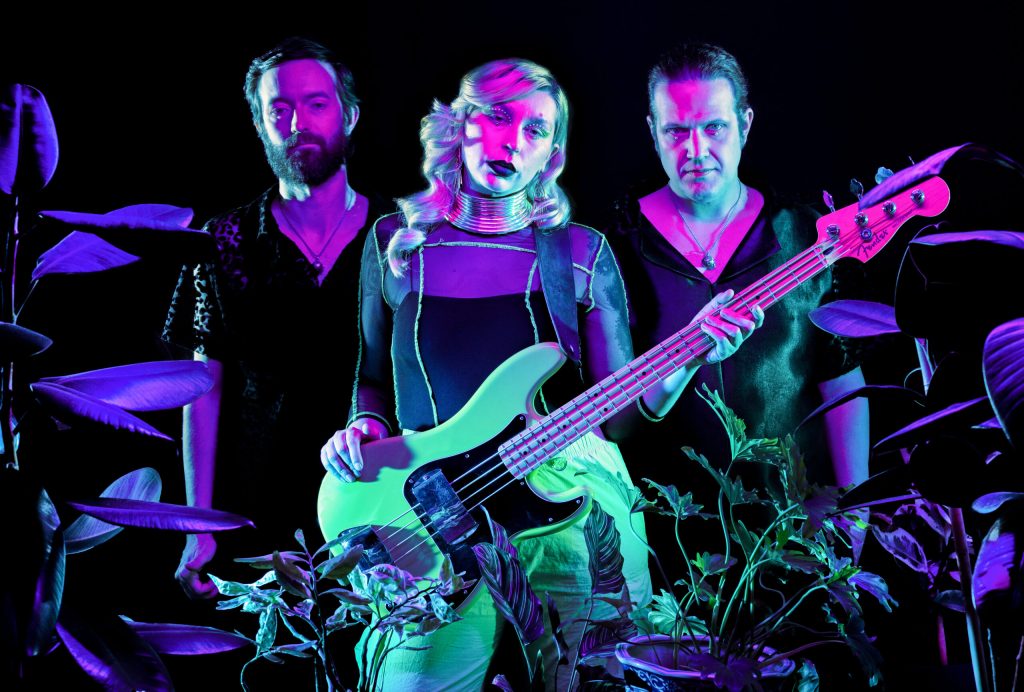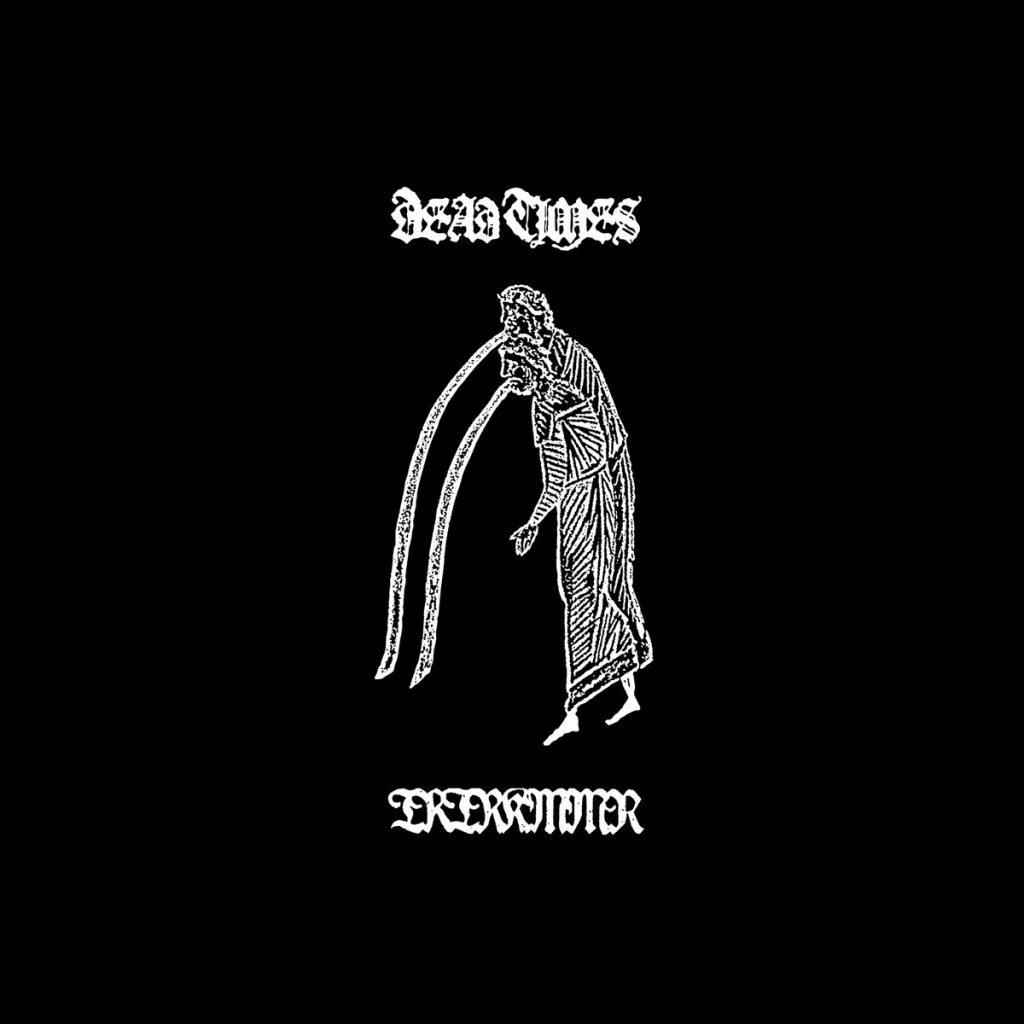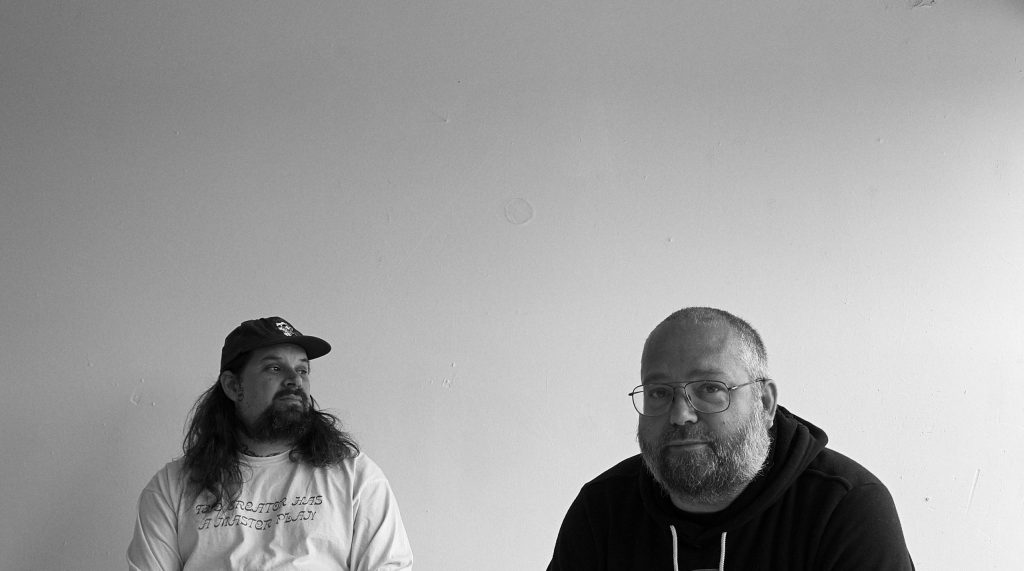
The Body is a prolific musical force whose creativity is matched only by the astonishing weight of their sound. Duo Lee Buford and Chip King have established their own musical language that reimagines how rhythm, dynamics, and sonics can shape or dismantle song structure. Over the course of two decades, the duo has consistently challenged assumptions and defied categorization, redefining what it means to be a heavy band. On their new album, The Body are again pushing limits and testing the boundaries of the studio to explore the extremes and microtonality of distortion to find its maximal impact. I’ve Seen All I Need To See is The Body at their most incisively bleak, a towering monolith of noise.
I’ve Seen All I Need To See marks both a return and departure for The Body. In contrast to the electronic-centric instrumentation and production-heavy arrangements of previous albums and Buford’s work in Sightless Pit, this album is focused on their core live sound: Buford’s booming, resolute drums paired with King’s obliterated guitar and howl. Following albums with extensive guest performances and acclaimed collaborations with Thou, Uniform, Full of Hell, and more, I’ve Seen All I Need To See is almost entirely the core duo. Guests vocalist/pianist Chrissy Wolpert and vocalist Ben Eberle are used very sparingly. Course, bristling distortion contorts every instrument, with samples of spoken word, cymbals, toms and King’s already noxious tone emerging from layers of feedback. The myriad of tonal interplays, captured in detail, has a movement all its own. The Body, together with engineer Seth Manchester of Machines With Magnets, capture the complexities of distorted sound in stunning detail. The clarity and the cacophony exceed anything they’ve created before, morphing desolate, festering soundscapes into an exhilarating sonic universe.
The recording studio remains indelible to The Body’s creative process. Working closely with Manchester, Buford often lays the framework for songs from the drums up, mirroring hip hop production. I’ve Seen All I Need To See trades out 808s and The Body’s self-sampling for live instruments with a focus on expanding mutations of sound from more limited sources. The results are remarkably rich textural bombardments. Throughout, The Body deliver oppressive noise with potent lucidity, replicating the overwhelming sound of their live performances in revelatory detail.
I’ve Seen All I Need To See demonstrates not only The Body’s fearless spirit and vicious edge, but their intellectual musical heft through its explorations of distorted sound and the power of distorted sounds’ interplay. Composer Roger Johnson said “Noise is power, but is generally represented as negative, chaotic, dangerous, violent, when it comes… from those marginalized from power. Noise is also an expression of freedom, a ‘liberation of sound.’” The Body are sound liberators capable of mining and extracting remarkable details from the most manipulated and distorted sound sources. I’ve Seen All I Need To See is a groundbreaking work and an ecstatic listen, whether seen as a testament to catharsis in oblivion, an opus of inexorable dread or a wholly liberating adventure.

Troller
Austin power trio Troller fuse fuzz bass, heavy analog electronics, and cinematic sound design into a simmering eight-song exorcism on their full-length Relapse debut Drain. Led by bassist and singer Amber Star-Goers, the line-up includes synthesist and rhythm programmer Adam Jones (of S U R V I V E), and guitarist and engineer Justin Star-Goers channeling their heaviest and most haunted currents into damaged anthems of wounded grandeur. Conspiring world events were ultimately a blessing as the pandemic forced the group to hunker down and fine-tune their practice space into a full recording studio. The result is multi-dimensional amplifier worship tinged with the stains of witch house, gothic pop and industrial shoegaze. Drain is both the sound of end times, and new beginnings.
It’s indeed an album of firsts: the first Troller LP entirely self-produced and mixed in-house; the first to feature guitar; and the first to fuse writing and recording into a seamless exploratory process. Despite the music’s electronic underpinning, it heaves with the texture and turmoil of live performance, honed across the band’s many years on stage. “Out Back” and “Rat Nest” drift shadowy and liminal, like underworld torch songs, while “Lust In Us” and the title track tilt and teeter in downward purgatories of smeared synth, screwed drum machinery, and fractured guitar. Amber Star-Goers wields her voice like a sacred weapon, alternately cursed, ethereal, erotic, and demonic. Instrumentally, Jones cites an array of techniques to achieve their ceremonial sound – from chromatic scales to shifting keys to the sculpted low end of rap production – but it’s the integration of so many disparate composites that elevates the group to a tier unto themselves.
Dirge-pop gem “Lictor” encapsulates Troller’s exorcistic alchemy in five intoxicating minutes. Cracked synthetic bells usher in a low-lidded march of mantric bass, windswept guitar, and apocalyptic melody, both doomed and defiant. Slowly Star-Goers’ soothsayer poetry comes into focus, hanging in the blood-streaked light: “Another faded point of view / becoming one’s true shadow / and behind every morning dew / succumbing to the darkness.”




